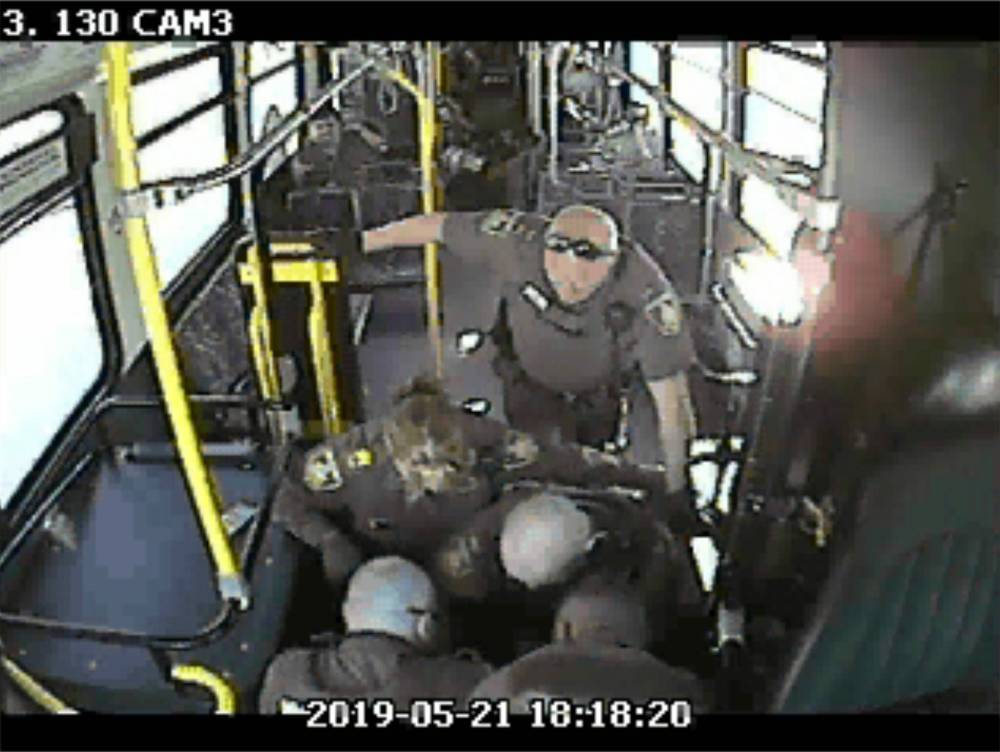Use-of-force expert makes recommendations during inquest into WPS custody deaths
Advertisement
Read this article for free:
or
Already have an account? Log in here »
To continue reading, please subscribe:
Monthly Digital Subscription
$0 for the first 4 weeks*
- Enjoy unlimited reading on winnipegfreepress.com
- Read the E-Edition, our digital replica newspaper
- Access News Break, our award-winning app
- Play interactive puzzles
*No charge for 4 weeks then price increases to the regular rate of $19.00 plus GST every four weeks. Offer available to new and qualified returning subscribers only. Cancel any time.
Monthly Digital Subscription
$4.75/week*
- Enjoy unlimited reading on winnipegfreepress.com
- Read the E-Edition, our digital replica newspaper
- Access News Break, our award-winning app
- Play interactive puzzles
*Billed as $19 plus GST every four weeks. Cancel any time.
To continue reading, please subscribe:
Add Free Press access to your Brandon Sun subscription for only an additional
$1 for the first 4 weeks*
*Your next subscription payment will increase by $1.00 and you will be charged $16.99 plus GST for four weeks. After four weeks, your payment will increase to $23.99 plus GST every four weeks.
Read unlimited articles for free today:
or
Already have an account? Log in here »
Hey there, time traveller!
This article was published 27/02/2024 (614 days ago), so information in it may no longer be current.
An expert on use-of-force by law enforcement has made a slew of recommendations to a provincial court inquest into the deaths of five men while in the custody of the Winnipeg Police Service, suggesting officers work more collaboratively with paramedics and 911 dispatchers when responding to agitated and distressed people.
Sgt. Kelly Keith, a part-time officer of the Ste. Anne Police Service and trainer on use of force, told the inquest Monday that training should be co-ordinated among emergency personnel.
“Ultimately, in the real world, all three departments are a team that needs to work together, and each have a critical role in ensuring the best possible outcome,” Keith wrote in a 41-page report on use of force in the incidents, filed as an exhibit in the inquest.

Provincial court Judge Lindy Choy is overseeing the inquest examining the deaths of Patrick Gagnon, 41, Michael Bagot, 40, Randy Cochrane, 30, Matthew Fosseneuve, 34, and Sean Thompson, 30, which commenced in November and is expected to wrap in early April.
The men died while in the custody of WPS officers over the course of roughly 12 months, beginning in July 2018.
Police restrained each of the men face-down prior to their deaths; three had their legs bound by a restraint known as an RIPP Hobble or by ankle shackles. The province’s police oversight agency, the Independent Investigation Unit, past cleared officers of wrongdoing in separate probes.
Inquest counsel requested Keith provide an expert opinion on the deaths, focused on how use-of-force policies in Manitoba and other Canadian jurisdictions differ and whether any changes could be made here.
Keith wrote that the deaths contained five common threads: the men were delirious and agitated; they were handcuffed in a prone position; police used, or considered using, a Taser; police performed first aid before Winnipeg fire paramedics took over; and the men had used illicit drugs before their deaths.
The first thread, Keith wrote in his report, is linked to the concept of “excited delirium.” The term is now widely recognized as pseudo-scientific and not seen as a legitimate medical diagnosis.
In his report, Keith recognized the controversy over the concept and referred to the men’s behaviour as “hyperactive delirium with agitation.” The term, he said, describes a state of agitation, aggression and distress linked to drug use or mental illness.
Keith recommended that when 911 operators receive a call consistent with someone in such a state, they should dispatch multiple police officers at a time who can quickly take control of the person and immediately dispatch the Winnipeg Fire Paramedic Service and an advanced-care paramedic, who can administer a sedative to a distressed person and treat any injuries.
The expert also said by sending multiple officers and medical responders to respond to agitated people, it would be easier to move someone from a prone position and put them on their side or in a seated position.
Keith wrote that Winnipeg officers should be trained to restrain agitated people on their sides or in a seated position when it’s feasible to do so.
He made no recommendations about the use of Taser electroshock devices; officers used a Taser only on Fosseneuve and displayed the weapon to three of the other four men to get them to comply. He also made no recommendations about police officers giving first aid.
Keith said it would be beneficial for officers to be made aware of any specific drugs a person had taken.
Once the inquest ends, Choy will write a report on its findings, which may include recommendations to prevent similar deaths in the future, but will not assign blame.
erik.pindera@freepress.mb.ca

Erik Pindera is a reporter for the Free Press, mostly focusing on crime and justice. The born-and-bred Winnipegger attended Red River College Polytechnic, wrote for the community newspaper in Kenora, Ont. and reported on television and radio in Winnipeg before joining the Free Press in 2020. Read more about Erik.
Every piece of reporting Erik produces is reviewed by an editing team before it is posted online or published in print — part of the Free Press‘s tradition, since 1872, of producing reliable independent journalism. Read more about Free Press’s history and mandate, and learn how our newsroom operates.
Our newsroom depends on a growing audience of readers to power our journalism. If you are not a paid reader, please consider becoming a subscriber.
Our newsroom depends on its audience of readers to power our journalism. Thank you for your support.
History
Updated on Tuesday, February 27, 2024 6:10 PM CST: Fixes typo






